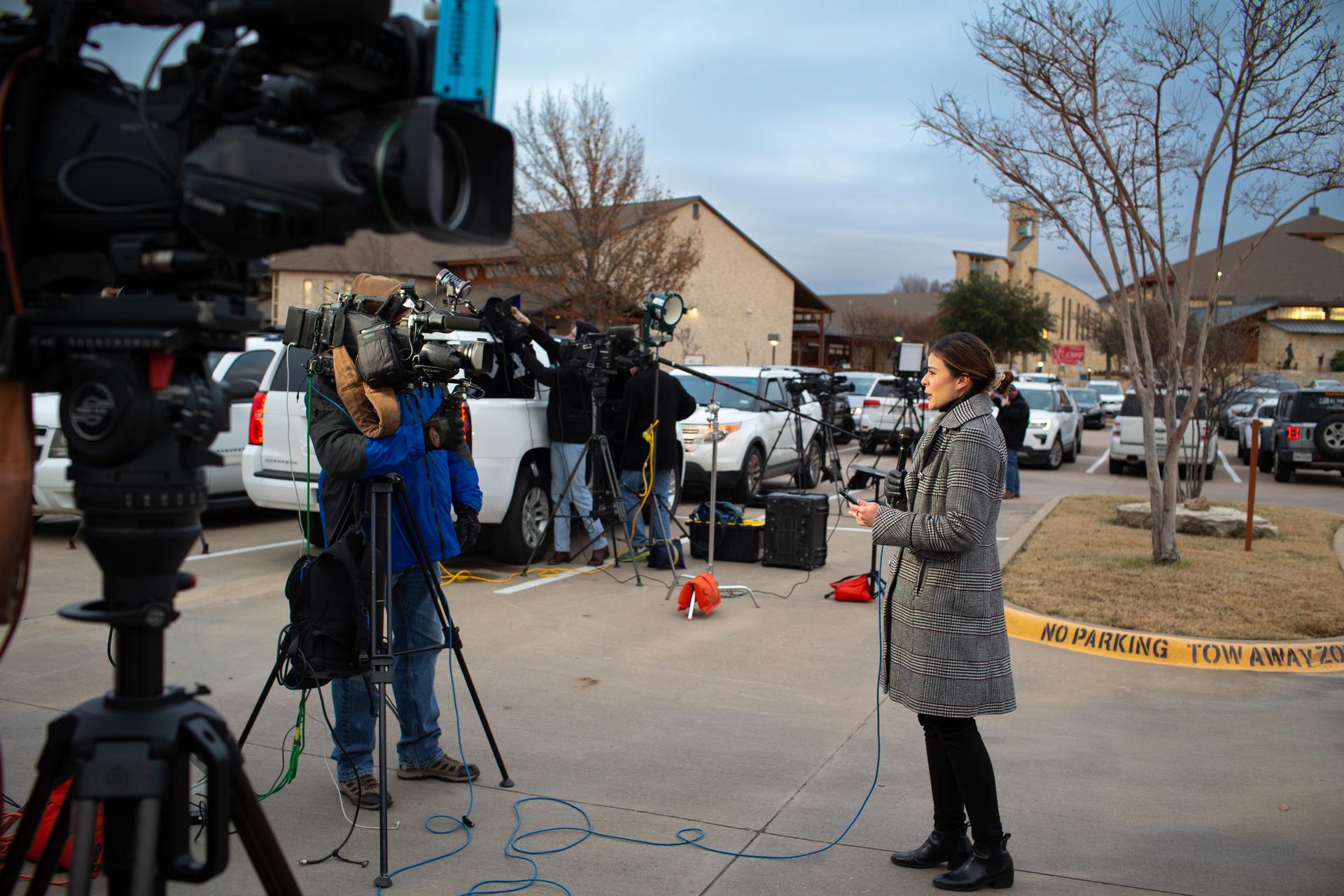NEW YORK – About two weeks ago, when a gunman took four people hostage at a synagogue in Colleyville, Texas, a handful of volunteers at nearby Good Shepherd Catholic Community Church fostered an organized, orderly, and safe environment for the hostage families, religious leaders, media, and others inside of the parish.
These unsung heroes of the day, known as “guardians,” were more than just volunteers. They were lay parishioners trained in handling emergency situations at the church, part of a unique diocesan wide “Guardian Ministry” program in the Diocese of Fort Worth.
The program recruits, trains and screens parishioners from the diocese’s 91 parishes across 28 counties to respond to various situations. An active shooter is one, but also more common situations like disruptive people, and medical events.
“This is very much like the safe environment classes and training that we ask our lay ministers, our clergy, our religious to go through so that there’s a shared awareness of danger so that there can be good prevention and we can have a safe place especially for the most vulnerable,” Bishop Michael Olson of Fort Worth told Crux.
“Secondly, it gives an ordered response to this because it necessarily involves working with law enforcement and civil authorities for the common good of society,” he continued.
There are about 300-400 guardians in the diocese in roles that include greeters, ushers, medical and armed guardians. The armed guardians’ role is predominantly held by off duty police officers, though non-law enforcement volunteers can also have the role after a screening process.
The first thing the guardians did the day of the hostage situation was go through a risk assessment with law enforcement. Then they got the hostage families into a private, secure location in the church hall and kept the media and others away. At the same time, they helped open and supervise another part of the church hall designated for the media – stationed in the church parking lot – to come in for coffee and to use the facilities.
Because of the efforts, the Church didn’t have to cancel 5 p.m. Mass.
“Everybody has their role and we, obviously, have a security mindset, and we’re looking at it through that lens, but the reality is we interact with all of the various ministries that are in the church and we try to do it well so that we can support each other,” Mike Short, the diocese’s security director told Crux. “That’s what happened, and it was really neat to see.”
Father Michael Higgins of Good Shepherd called the guardians “tremendously helpful.”
The Guardian Ministry program was created in 2018. It was something Olson and others in the diocese had begun to discuss a few years earlier with a rise in unprovoked violence against houses of worship nationwide. It was after the 2017 shooting at a First Baptist Church in Sutherland Springs, Texas, that killed 26 people and wounded 20 others, that the concept was formalized, and Short – who served almost two decades in law enforcement – was brought on by the diocese to lead the program.
Short and Olson both tout the diocesan oversight component as important.
“We just thought from the beginning that in order to get an organized response in these things everyone has to be on the same page, speak the same language, and be able to support each other and so that’s what we did,” Short said. “We designed it from top to bottom so everybody is trained the same way and so from a management perspective it helps, but you can also see from a response perspective that during an incident it’s very helpful as well.
Olson added that it’s something the parishes know he’s going to “ask them about with a sense of accountability,” which keeps everyone on top of it.
All four hostages escaped unharmed from the situation at the Beth Israel Synagogue. The incident didn’t change the day-to-day operations of the guardian ministry program or necessarily put them on high alert, but Short said it serves as a reminder of what could happen.
“When these things happen it reiterates why we do what we do,” Short said. “Obviously, this is a very high risk, thankfully unusual incident that happened, but to have in our parishes the ability to respond quickly to save lives is the purpose behind it, and the other side of it is that we always preach that these things could happen anywhere.”
Follow John Lavenburg on Twitter: @johnlavenburg













